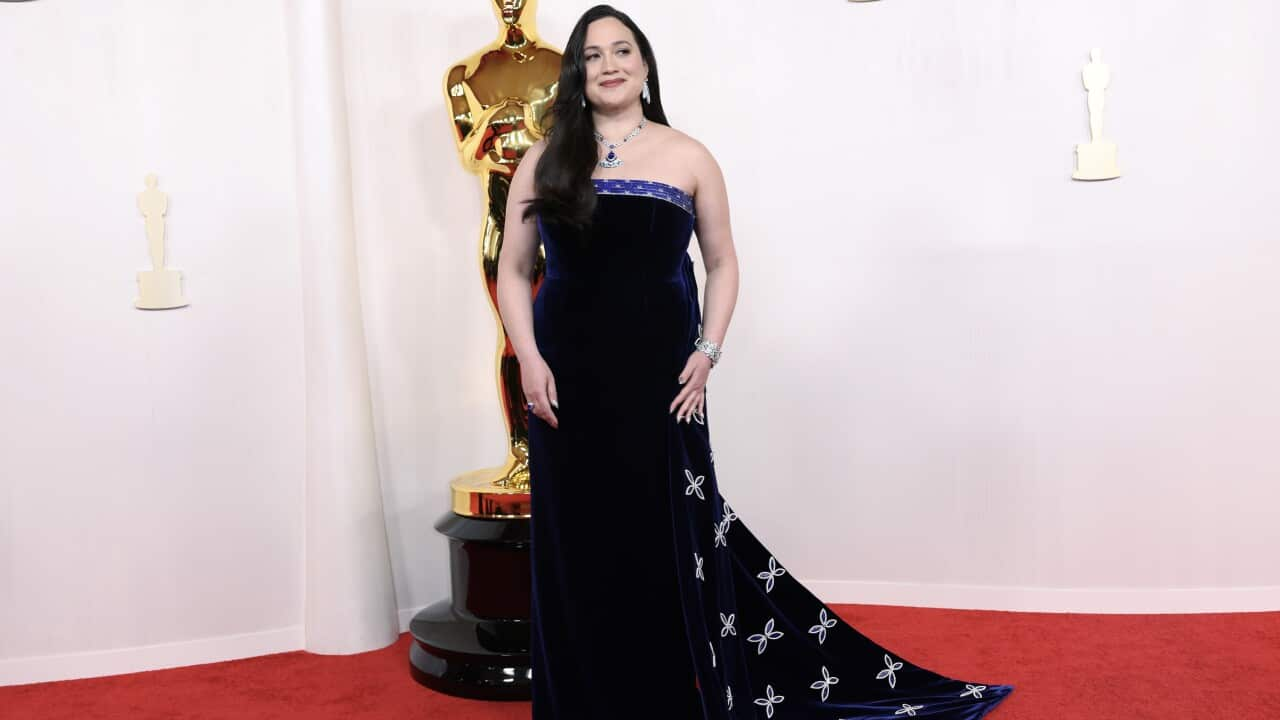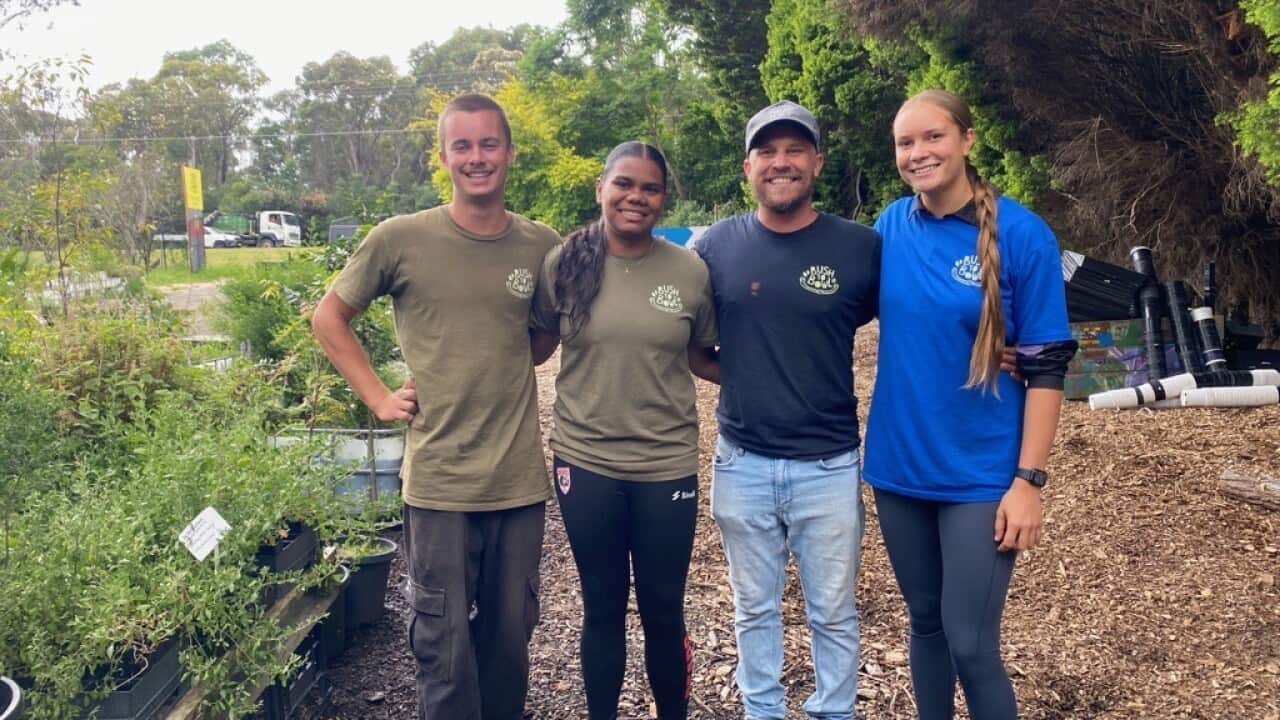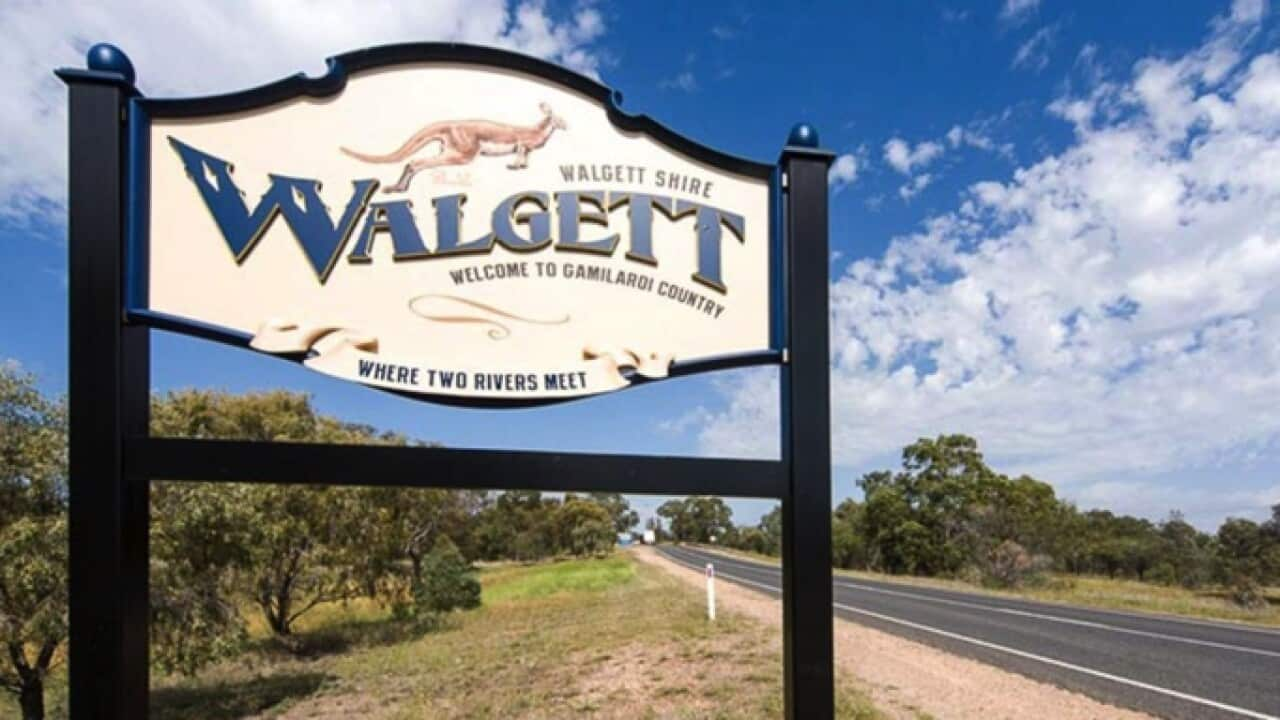Medicine wasn't a path young Dr Casey Sullivan thought she'd take.
At 16, she did her work experience at a veterinary clinic.
"I always wanted to be a vet ... I did think it would be the best job ever, but I came to learn there were aspects I just wasn't built for," she said.
A year later, her high school principal encouraged her to attend a Medical Science program designed to entice upcoming students at the University of Newcastle.
It would be life changing.
"A day into it, I realised that it was for me. I was in Year 11, and from there I just knew that I was going to be a doctor," she said.
Catering to her community
Fast forward to today, and Dr Sullivan is a General Practitioner who owns a clinic in Tamworth, New South Wales.
Her clinic, My GP Tamworth, is the state's first privately-owned and managed Indigenous GP practice.
For Dr Sullivan, the business was born out of a deep understanding and experience of the gaps in the health system for her community.
"When it comes to medicine, we are playing catch-up. People will attend, particularly in the case of Indigenous rural patients, and they haven't had access a doctor. By the time they get to us, they can be quite unwell," she explained.
"For me, opening my own practice I had a vision of how we could increase access, reduce costs, and provide services that focused on preventative health and make everybody feel safe and welcome."
Addressing the rural gap
For those with complex medical needs, living in rural areas can be difficult. The strain of being a significant distance from medical care can become too much, and some are forced to move closer to care.
Knowing this reality, the Wiradjuri and Gamilaroi woman has designed a clinic that can provide a broad range of services to the Tamworth community.
"It's a basic right, healthcare. There's a huge strain on a family to travel to services. It's not necessary, we can make this easier," she explained.
"We can have services on-site that support the family and don't add more difficulties or pressure."
For young people with complex medical needs, appointments can mean time away from their peers or missing school.
"I'm particularly interested in young girls, we know they're suffering from spotlight syndrome already. It's where you don't want to stand out or be different. There can be effects on their mental health, they can develop anxiety," she explained.
"But if we provide services nearby, they aren't going to feel ostracised. We want our girls to feel good, we want them to focus on being educated."
Dr Sullivan is still building her practice, with the next stage making history.
With close friend and colleague Dr Sarah Yarmand, Dr Sullivan will develop the first neurodivergent clinic in Tamworth.
"We saw a need for [one] in our region, to access ADHD, autism, dyslexia, learning disorders and behavioural issues management and treatment," she said.
"Assessments are almost impossible here. It's a very long wait, almost three years sometimes, it's really expensive and the closest place is Newcastle."
The clinic will have psychiatrists and other allied health professionals to provide a holistic approach to care.

NSW Women of the Year Awards for 2024 held at the Sydney International Convention Centre in Darling Harbour. NSW Aboriginal Woman of the Year winner Casey Sullivan. Credit: Toby Zerna
The ethos behind gaining and retaining rural doctors
For decades the medical industry has struggled to get medical graduates to pursue careers in rural areas.
"Rurally, we struggle to get doctors," said Dr Sullivan.
"It's difficult to attract doctors to rural medicine because there is this idea that they're unsupportive environments. They're secluded from the beach, from friends or family, all those sorts of things.
"So, I wanted to make sure that doctors wanted to be here and stay here."
Dr Sullivan has a unique focus on the doctor's lifestyle, ensuring they have a healthy work-life balance and empowering them to connect with the community.
"They tell me when they're turning up, they clock in and out at their times, they have the time to go to children's assemblies, sports days or appointments," she said.
"We introduce them into the lifestyle of Tamworth too. We link them in with local real estate, make that process of getting accommodation easier ... we get their families into schools, or sign them up with local sports teams. The whole package."
The value of lived experience
But it isn't just about getting doctors into jobs for Dr Sullivan. It's about getting the right doctor for the job.
"You need doctors from diverse backgrounds, racial, cultural, religious, spiritual and sexual. You need that to cater to a community as a whole," she said.
"We have a large interest in making sure that our doctors have special interests that cover a wide range so that no matter if the patient is Indigenous or identifies as LGBTQIA+, they are supported. Same goes with care, we have practitioners who are interested in sexual health, mental health, and dermatology."
In many situations, doctors can be the first responders to not only health conditions but also to other emotional, mental, financial and spiritual concerns.
Knowing the value of a patient and doctor relationship, Dr Sullivan champions lived experience in her staff.
"I think having a GP with lived experiences is so important. Sitting across from someone who has experienced what you have experienced, it's a game changer," she said.
Dr Sullivan is a survivor of domestic violence, and so has a passion for anti-violence education in her community and beyond.
"As Indigenous women in Australia, unfortunately, we are much more likely to suffer domestic violence. Even coercive control ... that is something I've had personal experience with," she said.
"I'm starting to speak openly about it because what we need to do in this space is allow our women, in our community, and our men, to speak up. Domestic violence can occur to anyone, it's not related to Indigenous status or socioeconomic status."
She hopes to develop an educational prevention program and travel to remote and rural communities across the state, sharing her professional and personal knowledge for good.

NSW Aboriginal Woman of the Year finalists, Kylie Captain, Carly Stanley, Dr Casey Sullivan and Deborah Swan. Credit: Toby Zerna
While she says the award is incredibly humbling, she knows that she does what she does for her community.
"As a doctor, it's about being part of people's journey. The accolades are great, but the people and my community is why I do it," she said.
"I feel deeply honoured that people allow me to be present for their journey, whether its from cradle to grave, or just the journey they're on at the time with current medical conditions. It's an honour that people feel that I can be there for them."
















